#wokeness as religion
Link
By: Nathan Williams
Published: Apr 27, 2021
Pseudoscience has become a serious problem. From Covid conspiracy theories to climate change denialists, the spread of scientific misinformation threatens our health and the health of our planet. Now there’s a new pseudoscience as bogus as flat-earthism or creationism. But this time there’s something different: those who you might expect to fight against pseudoscience are turning a blind-eye — or in some cases spreading it. This is the phenomenon of sex denial: the rejection of one of the most basic facts of biology in the name of ideology.
I’ve spent much of my career fighting against pseudoscience. I worked with the legendary sceptic James Randi to debunk homeopathy; I’ve also battled climate denialists and anti-vaxxers. I know pseudoscience when I see it. Sex-denial is a classic of the genre, using all the same techniques to sow confusion and misinformation. Their target is the seemingly uncontroversial, indeed obvious, fact that humans can be female or male.
Here’s what the science says: there are only two human sexes. That’s because there are only two types of gamete (the sex cells — egg and sperm). Humans (like all mammals) can develop along one of two pathways: towards making eggs (female) and towards making sperm (male). If anyone ever finds a third sex it would be a discovery on a par with finding a new continent — with a guaranteed Nobel prize. Until you see those headlines, you can rest assured there are exactly two sexes.
A small number of people have disorders or variations in their sex development (VSDs) meaning some aspect of their anatomy or genetic makeup may be atypical. But most people with VSDs are still clearly and unambiguously male or female. Indeed, most would consider it offensive to say that just because some part of your body is atypical that you are less of a male or less of a female. In a tiny subset it can be difficult to distinguish whether someone is male or female — sometimes called intersex conditions — but these likely account for less than 0.02 per cent of births. So, the overwhelming majority of people are unequivocally female or male, with their sex fixed from before they’re born to the moment they die. None of this is remotely new or controversial (at least in science).
Biological sex exists and it matters — most obviously because the existence of the human race depends on it. You can’t make a human baby without a male and a female — yet the sex-denialists hardly ever mention reproduction. Which is odd since that’s precisely why sex exists. Sex also matters for a host of other reasons. It influences your height, weight, strength and lifespan. It determines your likelihood of getting breast cancer or testicular cancer, heart attacks, mental illness, even your chance of dying from Covid-19. Denying sex is dangerous as well as disingenuous.
So what exactly do the sex-denialists claim? Like climate-deniers or flat-earthers, there’s no single alternative theory — rather a hodge-podge of different claims designed to confuse the public and push an ideological agenda. At the most extreme there are those who flat out deny the reality of sex. “It is not correct that there is such thing as biological sex”, says Prof Nicholas Matte at the University of Toronto. Dawn Butler, a British MP and the Labour Party’s Shadow Minister for Women and Equalities, said on national television: “A child is born without sex.” What is so extraordinary about this claim is that it is so obviously untrue. At least the flat-earthers have some degree of everyday experience on their side: it’s easy to forget we’re on a spinning ball of rock. But to deny something that everyone knows and experiences every day is bizarre — and of course not supported by any science.
Another approach is to accept that the sexes exist but imply they’re a human invention, like faiths or football teams. For instance, Chase Strangio of the ACLU says, “The notion of “biological sex” was developed for the exclusive purpose of being weaponised against people.” This is a classic pseudoscience confidence trick. Of course it’s true that all scientific concepts are in one sense human creations. Mammals, atoms, temperature and earthquakes are all concepts created by scientists. However, those concepts are useful precisely because they describe real aspects of the physical world. Surely no one would claim that these exist purely in our minds. Similarly, the reality of biological sex is a fundamental fact about all mammals that existed long before humans did — just as gravity existed long before Newton.
A third approach is to accept that sex exists but claim it’s so complicated that you really shouldn’t bother your pretty little head about it. A recent article in The Skeptic took this approach — drawing an analogy between the concept of sex and the concept of species. It’s true that there are cases where the borderline between species can get fuzzy — for instance hybrid polar and grizzly bears can exist with the delightful name of pizzly bears. But such rare cases don’t invalidate the concept of species — indeed biology would be impossible without it. The overwhelming majority of vertebrate animals are members of a single species — just as most humans are members of a single sex.
Whereas most popular science articles are trying to take a complex subject and make it seem simple, articles like these strive to take a simple concept and make it seem complex. The evidence is clear in one of the most unusual corrections I’ve ever seen. “This article was updated as it previously omitted a reference to primary sexual characteristics.” That’s right — an article all about the reality of biological sex “forgot” to mention the primary sexual characteristics. This is deliberate scientific obfuscation.
So why would anyone want to deny something as important and obvious as sex? Perhaps it is the misguided belief that obscuring the reality of sex will help trans people. It is of course important to distinguish between sex and gender or gender identity (someone’s internal sense of who they are and the social roles they fulfil). There are people whose biological sex and gender identity do not match: trans people. I believe people should be free to self-identify as whatever gender they wish. However, one can no more self-identify one’s sex than you can self-identify your height.
This needn’t be a problem — we can celebrate that there are people who want to break out of the traditional roles and social expectations associated with their sex. But the new ideology says that a trans person doesn’t merely change their gender, they change their sex — even if they’ve had no surgery or hormone treatment. This means believing that someone can have a body identical to that of a typical male and yet in fact be female purely through the act of identifying as such. The only way to make that falsehood true is to demolish the very notion of biological sex.
Without the truth on their side, the sex denialists’ only option is to shut down discussion. Anyone who dares question the ideology faces insults, abuse and even violence. It’s an approach that has proven highly successful. Despite this being an issue of great public interest, very few scientists or science journalists have made any attempt to communicate what the science says. When I approached the Science Media Centre, which prides itself on being able to find scientists to talk on even the most controversial subjects, they said they were unable to provide a single expert. Places that once championed rationality and evidence like the Freethought Blog now explicitly ban those who dare present views on the existence of biological sex that they consider heretical.
When a biologist tweeted that stating biological facts is not bigotry, she was attacked by the very body you might expect to support her — The Royal Society of Biology — which labelled her comments as “transphobia”. Perhaps there was some detail of the science she got wrong — in which case you would expect this learned society to point out the error. But despite numerous attempts to find out what was incorrect about her statements, they have refused to answer. Even at its most censorious — the Catholic Church would tell blasphemers what their crime was. The modern witch-burners won’t even do that — they will rarely even discuss their claims with anyone who does not already share their beliefs.
Even one of the world’s best-known biologists isn’t safe. Prof. Richard Dawkins recently tweeted to ask whether there was a difference between self-identifying your race and self-identifying your sex/gender. This was the final straw for the American Humanist Association which duly stripped him of a 25-year-old lifetime award — something they’d only done once before when a recipient was accused of serious sexual harassment. Humanism is supposed to stand for rationality and freedom of thought, but for the AHA it seems heresy is still a crime punishable by excommunication. These are far from isolated examples. Many academics, particularly women, have faced threats and harassment merely for daring to talk about biological sex. There is no clearer demonstration that sex denialists are charlatans; their only weapons are creating fear and confusion. It’s time the rest of us stood up to them.
#Nathan Williams#sex denialism#Flat Earth#gender flat earth#reality denial#gender ideology#cancel culture#online mob#biological sex#human biology#biology#wokeness as religion#woke activism#wokeism#woke#cult of woke#religion is a mental illness
982 notes
·
View notes
Text
sex denialism - should we fear it?
a specter is haunting the public sphere - the specter of sex denialism.
if you’ve been keeping up with the kardashians - or just with what’s been going on in the media lately - you may have stumbled upon a brand new term: “sex denialism”. some people love it, some hate it, some are afraid of it - and it seems to have caused quite the outrage in the scientific community - but you may be wondering to yourself: what is “sex denialism” even about?
well, if you’re looking for an explanation, look no further! this brand new hot-button issue revolves around a question that, on its face, seems quite simple: do people have sex or do they not? as you will see, however, answering this question has proven rather complicated.
it’s in our favorite tv shows, on the billboards we drive by, even in our children’s textbooks - but is sex really real? prompted by a dec 1 post on e. musk’s infamous platform, twitter, which called the phenomenon into question, people around the world have been discussing the possibility of sex being all just a great big lie - an adult fairytale, if you will.

the tweet was controversial, gaining many supporters as well as many opponents. it was retweeted by public figures as prominent as stephen king - though his stance on the topic remains unclear. there were also many dissenting voices, with people allegedly flooding the original poster’s inbox with insults (namely “virgin”) but also deep, thought-provoking questions like “if sex isn’t real, how were you born?”
we have asked experts to weigh in on the matter. richard goberpober, a biology professor at the university of milwaukee, assured us that “sex is definitely real. it is the only way some organisms, like humans, can reproduce”, and “look, i’m not saying everyone has a lot of it, but our species would go extinct without it.” however, there doesn’t seem to be a clear consensus on the matter in the scientific community. robert albert, a geologist who has dedicated the better part of his life to the study of magic crystals, went on record saying “when you really think about it, sex [...] is nothing more than another instrument in the hands of the feminists, who seek to establish matriarchy by using the promise [of sex] against us. in all my 45 years of life, i’ve [...] never seen it happen.”
the celebrity community is equally split on the issue. for example, a day after the twitter “sex-astrophe”, danny devito came out to confirm that “[he] love[s] sex”, further claiming, “i have it every day. just ask my wife.” despite not being asked to comment on the situation, former president d. trump took to his social media platform, truthsocial, on dec 3, to express his opinion. in the post, he wrote: “the democrats are now claiming that #sex is not real. of course sex is real. i have sex every day. and it is good sex. the very best in the world.”
we have reached out to millionaire taylor swift for comment on the issue. “sex? i have never seen hole,” she responded evasively, then added, “and stop asking me about it, or my lawyer will be in touch.” we have also reached out to stephen king on twitter, however, he declined to comment.
much to the shock of his fans, sex education star ncuti gatwa came out in support of the controversial tweet in his new interview for teen vogue. while the show he has previously starred in promotes the idea that sex exists, he is apparently of the opposite opinion. “even my parents told me about it, but i’ve come to realize that it’s probably not real,” he claimed, further insinuating that, “it could be a lot like santa, you know, or the tooth fairy. except grown adults believe in this stuff.” when pressed on why exactly he believes sex is not real, he explained, “a lot of people think i have, but i’ve actually never had it. it just... doesn’t seem natural. i mean, i use mine to urinate. and you’re telling me i should be putting it in some sort of vortex? what if it gets lost in there?” the interviewer has since commented that gatwa appeared distraught by the possibility. when asked whether he would continue to star in the popular show, he declined to answer.
ultimately, this topic has proven to be quite divisive, splitting society into two different camps: sex believers and sex deniers. which one are you?
#nathan williams#sex denialism#flat earth#gender flat earth#reality denial#gender ideology#cancel culture#online mob#biological sex#human biology#biology#wokeness as religion#woke activism#wokeism#woke#cult of woke#religion is a mental illness
1 note
·
View note
Text
A Whumper with fire powers branding their Whumpee not just with their name or initials, but their handprints.
Two palms scarred against either side of Whumpee’s neck, fingers wrapping around their throat in a collar that can never be removed. Hands on their sides, just below their broken ribs, a touch that will never relent. Fingers wrapped around their wrists in shackles that won’t be unlocked. A handprint against their face, cupping their cheek that had already suffered so many punches. The small of their back. A single hand just between their shoulder blades. Dragging down their thighs.
Just. Branded handprints.
#this was what I dreamed about last night and I’m sad I woke up#if I do write that demon story (though I’m thinking more about it—I don’t really want to tie it in with religion#but like how else would I be able to have a demon set up? so maybe I’ll change the ideas a little bit. or I could just never give backstory#on anything and it won’t be a problem lmao) I’m definitely going to include this#whump#whumpblr#whump community#whump writing#its me coal#coal wrote something#whumpee#whumper#whump prompt#whump prompts#whump trope#whump tropes#whump ideas#whump idea#whump cw#whump inspo#whump inspiration#whump concept#demon whumper#villain whumper#pet whump#pet whumpee#whump dream#writing prompts#writing prompt
1K notes
·
View notes
Text

#ex christian#ex religious#socialism#apparently#growing up religious#christianity#leaving religion#wtf#woke up thinking about this
22 notes
·
View notes
Text
thinking alot ab queer spaces in religion 4 tonite.
not sure why but a vision of like. queer churches popped into my head. like for example a church sunday but its all queer people praying and singing and being thankful and sharing life moments and organizing community support. augh. man
if this is real i want in but i like havent been invested in christianity any more than when i was taken to church semi-regularly up to my tweens. but now after taking a bunch of queer studies and intro level anthropology im like damnnnn being in a religious ceremony centered around queerness would do so much for me
i feel like queer community bonding would be so strong too with the structure of support involved in churches tbh !!!! like from what i remember and what i hear from my grandparents it just sounds so. togetherly
#i wrote this last night and woke up with it on my app so postig it ig. i think i cooked?#queer religion#< ??? if thats the correct term#for context also as a kid my family went to. methodist church i think?#this isnt just abt christianity tho ofc im talkig like any religious or spiritual identity as it intersects with queerness#text
25 notes
·
View notes
Text
Oppressive religious dogma is like the instinct of some animals to eat their young in an attempt to protect them. You will destroy the parts of your children that you fear they would be divinely punished for. But in the end they are still destroyed.
#i just woke up at 3 am. im listening to hozier. im crying.#guess its one of those moments#recovering catholic#catholicism#deconstructing christianity#deconstruction#religious deconstruction#religion#dogma#ex catholic#ex christian#deconstructing catholicism
218 notes
·
View notes
Text
I'm 100 pages into Moby Dick and they just got on the goddamn boat
This book actually kinda fucks hard it's great?
#Moby Dick#Was not expecting a comedy out of this book tbh#Nor was I expecting homoeroticism#And I was NOT expecting Herman Melville to actually be cool about representing non-Christian religion in a Christian dominated society??#And there's only been one (1) woman in the book so far but she was such a cool character?#Plus there's a shocking amount of class consciousness in this??#Herman Melville Woke King??????#This book came out in 1851 and Ishmael's saying this Pacific Islander he met a couple of days ago is basically George Washington#He does keep calling him a cannibal and the guy does keep talking about doing cannibalism#So it might not hold up to modern standards for racial sensitivity in that regard#But like the man's saying that this guy wanted to give Christianity a try#Figured out that it wasn't for him so he went back to his pagan ways and literal idol worship#And Ishmael was like “Whoa based? God said to love your fellow man and this is man is as equal to me as anyone else”#Real shit here honestly#This was pre-Civil War this is amazingly ahead of its time in terms of racial justice#Also: “hell is an idea first born on an undigested apple-dumpling” is based as fuck I love this guy so much#The first chapter is a masterpiece#“This is my substitute for pistol and ball. With a philosophical flourish Cato throws himself upon his sword; I quietly take to the ship”#THAT IS SO FUCKING GOOD#I can't believe it's taken me this long to START THIS BOOK
14 notes
·
View notes
Text
Actually, no, I do not advocate the violent destruction of the Catholic Church and everything and everyone associated with it and those who do sound like genocidal assholes.
#can't believe I'm defending catholics but violent fantasies of killing clergy and burning vatican city isn't woke my dudes#the catholic church is insanely corrupt but you sound fucked up wanting the entire religion itself forcibly eradicated#babe you sound like a fascist#catholic church#like obviously i understand angry vent posts that express these sorts of sentiments but seriously wanting that stuff is weird
25 notes
·
View notes
Text
Guys remind me later to overanalyze ‘Not Entirely Alone’ by The Narcissist Cookbook
#camera talks#sorry songs about names and religion and shit make me so fucking excited#literally have been playing this song on repeat since I woke up#I already knew and listened to this song but like listening to it at the right time reawakens things yk#ohhh man this song is so good to me I love it sorry <3#the narcissist cookbook#tnc
15 notes
·
View notes
Text
i think what doesn't work for me when people talk about tsv supposedly being religious horror/making commentary about "religion" as a broad overarching category is that it's nonsensical to make commentary about "religion" in general. you can't do it. you have to pick one, and if you pick one it's going to show like black lettering under a thin layer of white paint. tsv borrows terminology, sure, it has its saints and angels--but they're deeply alien to saints and angels as they are understood in real world traditions. re-skinned catholicism this ain't
like this is what i mean when i say i don't think of tsv as being about its religions, but that it uses them as a vehicle to talk about (state/corporate/individual) power and violence. we see those themes of zealotry and clerical power struggles, but they aren't what the story's about. a story that is "about religion" isn't going to hand you catering staff being sacrificed to a fossil fuel god or incarcerated people being turned into public infrastructure.
and i don't think tsv would have the appeal that it does if it were about a specific kind of religion in that narrow way. because it's talking about these systems of power and violence that are very real, just made fantastical by the setting, it's much more biting than if it were trying to focus on religion. because tsv's gods and religions are strange and alien, the audience is able to sidestep a lot about real world traditions and engage more with the other themes, in a way that would be impossible if you scratched the surface and found "western christianity but weirder" under the paint.
#that's just like my opinion tho#obviously none of this precludes finding resonance between certain elements of tsv's fictional religions and real world traditions#but i really resist the idea that tsv is 'about' religion bc religion is the vehicle#and the thing that creates the heightened and fantastical elements of the world#in the way that black s4ils isn't really about the historical conditions that created golden age piracy#hard pressed to think of another example bc the cats woke me up at 4am and i've been working on this post for like 40 min#trying to be precise and clear about what i mean#anyway my point is in tsv religion is the paint not the picture#imo.#tsv tag#like having intentionally done western christianity re-skinned for story settings#i feel i know of what i speak
17 notes
·
View notes
Note
Maybe it's an issue with the word because English isn't my first language but all saints are human, right? Is praying to Mary or other saints not worshiping? Does worship only mean "pay honors to god"? And in that case what would you say to mean honoring a saint
Angels can be saints, too. When we say “saint” we are referring generally to recognized saints. We understand that we don’t know exactly what goes on after death so there are potentially billions of unrecognized saints we don’t know about.
For honoring a saint, it’s like asking a relative to pray for you. It’s not worshiping Mary, but praying is a form of worship. We venerate Mary.
We can ask for intercessions and ask for help from saints. You can also pray for them and pray for your deceased relatives.
Something that shook me to my core about some protestants is that they don’t believe in purgatory. When you die, you’re judged and placed and that’s it. For them, there’s no point in praying for deceased relatives. That makes me so sad. I love that we are encouraged to pray for relatives so they can get out of purgatory quickly.
#catholic#christianity#religion#not heresy#anonymous#sorry I did a mini rant#I couldn’t sleep because I woke up wanting $20k
49 notes
·
View notes
Text

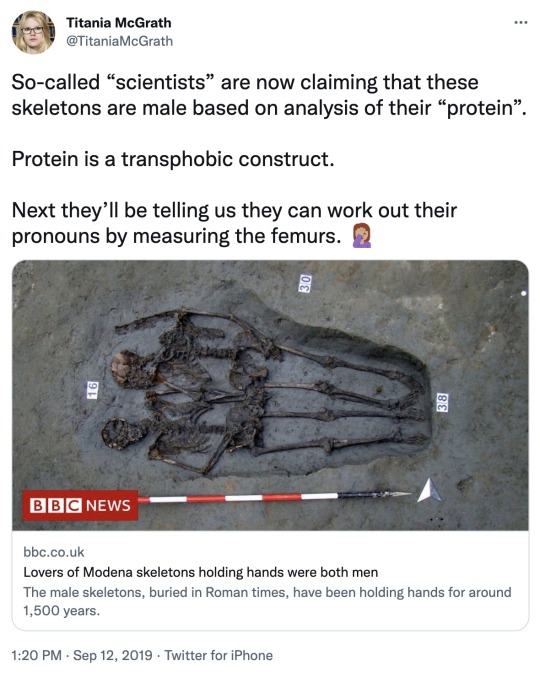
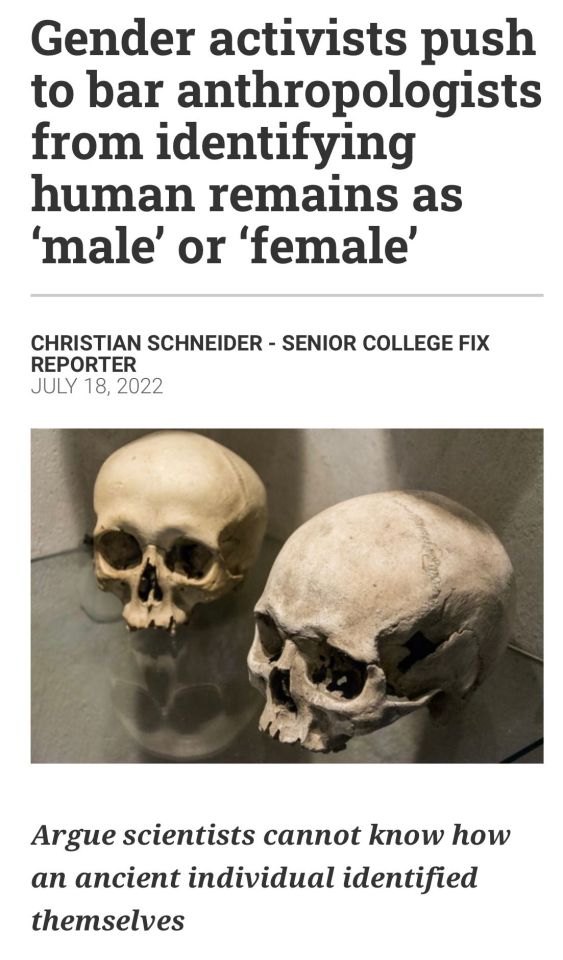
By: Daisy Stephens
Published: Jul 24, 2022
The Black Trowel Collective, a group of American archaeologists, claimed there are suggestions that many historical cultures had more than two genders and so archaeologists should be "wary of projecting our modern sex and gender identity categories onto past individuals".
The group claimed scientists have a "long history of imposing modern patriarchal gender and sexual norms onto the past".
"Human gender is highly variable and... human beings have historically been comfortable with a range of genders beyond modern 'masculine' and 'feminine' binaries," the group wrote in a blog post.
The Daily Mail claims that some academics are beginning to label ancient human skeletons as 'non-binary' or 'gender neutral'.
The idea has been criticised by historian Jeremy Black, who said gender is key to understanding history.
"It is an absurd proposition as the difference between genders, just as the difference between religious, social and national groups, are key motors in history," he told the Daily Mail.
"This very ideological approach to knowledge means that we're in danger of making knowledge itself simply a matter of political preference."

==
Life continues to imitate parody. 🤡
"projecting our modern sex and gender identity categories onto past individuals"
Current gender woo is the invention and imposition of bored, modern first-world academic elites, which makes this absurdly ironic.
"we're in danger of making knowledge itself simply a matter of political preference."
This is literally the postmodern, social constructivist belief and objective.
No one ever needs to respond to this deranged ideology with anything other than "no."
#Titania McGrath#Stephen Knight#anti science#antiscience#science denial#biological sex#biological reality#biological dimorphism#dimorphism#gender ideology#queer theory#social constructivism#social construct#gender pseudoscience#gender activism#woke activism#wokeness as religion#wokeism#cult of woke#woke#religion is a mental illness
963 notes
·
View notes
Text
”I don’t want to give Jehovah’s organization a black eye so I have to suffer in silence. Oh the pain! The pain!”
Mhm. Have you ever considered that Jehovah’s organization has given you not one, but two proverbial black eyes, broken ribs, and a concussion over the years; and maybe you should expose them for the abusers they are, if only enough to get yourself help to heal from the abuse you’ve experienced? You’ve got Stockholm syndrome bad, and you’re making it everyone else’s problem. You cared about your abusers so much that you abused me in their name, just because I wanted no part of their organization. Even if I didn’t seek out apostate resources, I wouldn’t have needed them to make my decision to leave because of how much you vented about them to me since I was about five years old. Did you just expect me to stay here and take the abuse like you did? I’m better than that; I’m better than you.
#exjw#ex cult#I woke up and he was venting about it to my mom very loudly so I just went “fuck that”#I could’ve went somewhere in the house to eat but I specifically chose the 20 degrees F screen room so that both of them know#I’d rather freeze than hear one more second of his venting knowing that he is still refusing to get help#Mom wants to watch the convention? Glorious. I’m not leaving my room until he’s done talking. I will not be her deus ex machina#I will not be her excuse to end the conversation so she can watch the convention with me#She can sit there and listen to it; and maybe she’ll grow some reasoning ability and realize#the religion she so piously subscribes herself to is splitting us apart and killing her husband#and maybe she’ll begin to take his triggers seriously and not make passive-aggressive remarks about how she wants to listen#to all the comments and not mute it when an elder who sexually harassed him begins speaking#and maybe my dad will grow some common sense and realize that continuing to go to meetings will ensure he is in a state of trauma#for all eternity#and maybe — just maybe — they will realize that everything they read in my diaries was right#and that they were absolutely positively 100% in the wrong for screaming at me about their contents#and apologize for what they’ve done to each other and to me#But that’s wishful thinking because [first name] “I’m more stubborn than you” [last name] will hold out until it kills him#and my mom is ex-Catholic and convinced the JWs are entirely truthful just because she prefers the possibility of death over hellfire#You can’t make this shit up#I live in a madhouse with crazy people
6 notes
·
View notes
Text
Anonymous asked: Going through your archive I loved your fantastic long posts on Shakespeare. As you know there is some debate on whether Shakespeare was either a Catholic or Protestant. Where do you stand on this issue?
The issue of Shakespeare’s religion, as you have pointed out, has been an issue that has long vexed both scholars and the educated layman. To be honest it is of little interest to me (beyond a playful parlour game) because it has never stopped me appreciating the greatness of his works.
Of course it would have mattered to Shakespeare. For in his lifetime, atheism was equated with immorality, and Catholicism in England was equated with treason. Queen Elizabeth I had executed Edward Arden, a relative of Shakespeare’s mother, for his supposed Catholic treachery. Religion was a matter of life or death; and Shakespeare, like everyone else, walked a precarious denominational line.
But if pushed I would say he was Protestant but with a Catholic imagination. I suppose this is what fence sitting looks like. But hear me out.

It’s possible to answer this seemingly simple question in lots of different ways. Like other English subjects who lived through the ongoing Reformation, Shakespeare was legally obliged to attend Church of England services. Officially, at least, he was a Protestant. But a number of scholars have argued that there is evidence that Shakespeare had connections through his family and school teachers with Roman Catholicism, a religion which, through the banning of its priests, had effectively become illegal in England. Even so, ancestral and even contemporary links with the faith that had been the country’s official religion as recently as 1558, would make Shakespeare typical of his time. And in any case, to search for a defining religious label is to miss some of what is most interesting about religion in early modern England, and more importantly, what is most interesting about Shakespeare.
Questions such as ‘was Shakespeare a Protestant or a Catholic?’ use terms that are too neat for the reality of post-Reformation England. The simple labels Catholic, Protestant, and Puritan paper over a complex way faith works in our lives. Even in less turbulent times, religion is a framework for belief; actual faith slips in and out of official doctrine. Religion establishes a set of principles about belief and practice, but individuals pick and choose which bits they listen to. I think that’s fair as someone who is a believing Anglican Christian I slip and fall in my faith all the time, but all one can do is ask for sincere forgiveness, get up, dust yourself off, and get on with your life. Until the next prat fall.
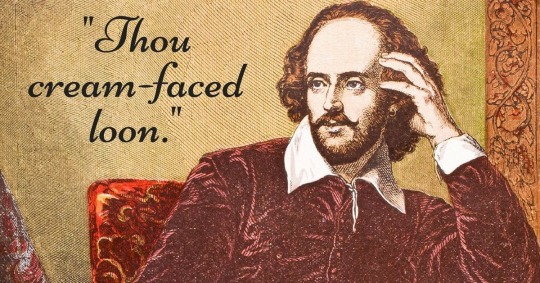
My point is that ‘Catholicism’ was an especially tricky category in this era to be definitive about. Under pressure of crippling fines and even execution, early modern Catholics maintained their faith in a variety of ways. Not every so-called papist supported the pope. The Roman Catholic Church of this era encompassed ‘recusants’ (who openly displayed their Catholicism by refusing to attend mandatory Church of England services) and ‘church papists’ (who conformed to the monarch’s protestant customs, but secretly practiced Catholicism). Some Catholics supported Elizabeth politically, looking to the pope only in spiritual matters; others plotted her overthrow.
Catholicism was in the eye of the beholder; other Protestants saw many elements of Elizabeth’s own Church as horrifyingly ‘Romish’, but to average Protestants those puritanical objections seemed hysterical. Some accepted the theology and politics of the reformation, but still harboured an emotional attachment to older traditions, like praying for the dead.
Furthermore, people have a habit of changing their minds over time, shifting their beliefs at different moments of their lives. Asking about the confessional allegiance of any early modern individual is a much more difficult – and interesting – enterprise than figuring out an either/or choice. Whatever Shakespeare’s personal faith was, he wrote plays that worked for audiences who had to feel their way through these dilemmas, audiences for whom Protestantism was the official state religion, but who experienced a far messier reality.

Playhouses provided spaces to explore these anxieties. Even though the direct representation of specific theological controversy was banned, Renaissance plays frequently featured elements of the Roman Catholic religion that had been practically outlawed in real life. Purgatorial ghosts and well-meaning friars still appeared on stage; star-crossed lovers framed their first kiss in terms of saintly intercession and statue veneration (Romeo and Juliet, 1.4.206-19); and various characters swore ‘by the mass’, ‘by the rood’, and ‘by’r lady’.
Shakespeare wrote over sixty years after Henry VIII set the Reformation in motion. By the 1590s, English friars, nuns and hermits belonged firmly to the past, and many writers used them like the formula ‘once upon a time’: to create a safely distant, fictional world. Even so, Catholic Europe and Jesuit missionaries were perceived by state authorities as a very present danger. Anti-Catholic propaganda demonised that faith as fundamentally deceitful; ‘papist’ piety was mere pretence, a cover for lechery, treachery, and sin.
Accordingly, some writers used Catholic settings as a shorthand for corruption (think of the decadent world of Webster’s Duchess of Malfi, with its murderous and lascivious Cardinal). So Catholicism could point in different fictional directions: it could benignly and nostalgically suggest an unreal past, in the manner of a fairytale; or, it could paint a threatening image of a more contemporary fraud.
But it’s striking that Shakespeare uses Catholic content rather differently from his contemporary dramatists, often embracing the contradictory connotations of, say, a friar, exploiting the figure’s nostalgic and threatening associations at the same time. This exploration of ambiguity seems to have been one way in which he thought through not only religious controversies, but also the very act of making fiction itself. A figure who works both like a fairytale and like a fraud tests out what is good and what is dangerous about literary illusion.

All’s Well that Ends Well is a case in point. This comedy tests fantasy ideals against real-life problems. Helen, the clever wench who miraculously cures a king and wins a husband of her own choosing, finds herself in love with a prince who isn’t so charming. But critics have never been too sure about whether Helen herself is a virtuous victim of her snobbish husband, or if she’s simply conniving and self-centred. By putting all of these possibilities in play Shakespeare invites us to interrogate the ideals that underpin romantic comedy: are the conventions we think of as happy endings really all that happy?
One way that Helen secures her own happy ending is by putting on a pilgrim’s habit which allows her to follow (and eventually catch) her runaway husband. But this costume, with its mixed Catholic associations, further complicates the character and the morality of the plot. While the Catholic Church regarded pilgrimage to holy places as “meritorious” (a way of piously working to the salvation that only Christ could enable), Reformers scoffed at the notion that one earthly place could be holier than another, dismissed as idolatrous the intercession of saints usually invoked at shrines, and abhorred the idea that Christ’s gift of salvation needed supplementing. Shakespeare hints both that Helen might be the hypocrite of anti-Catholic polemic, who uses a pious habit to conceal selfish intentions, and that she might be a prayerful woman, who would be justly rewarded with a happy ending.
Furthermore, the comedy also draws on more secular associations of ‘pilgrimage’, which run through the love poetry of the period figuring amorous devotion. We first learn of Helen’s pilgrimage in a letter that takes the form of the sonnet; at this point Helen is painted as something of a Petrarchan stalker, trekking her errant husband in the clothing of well-worn poetic metaphor. But Shakespeare unpicks other threads of meaning in the pilgrim costume too. In anti-Catholic fabliaux pilgrims used their religious journeys for decidedly smutty adventures. It’s probably no mistake that Helen uses her pilgrimage so that she can finally have sex. And again, there’s a question mark hanging over this behaviour. On the one hand her active desire for physical intimacy with her husband is legitimate and liberating, but on the other, she repeatedly removes her husband’s power of consent, most disturbingly in a bed-trick (a ‘wicked meaning in a lawful deed’). The comedy questions her sexual scruples.
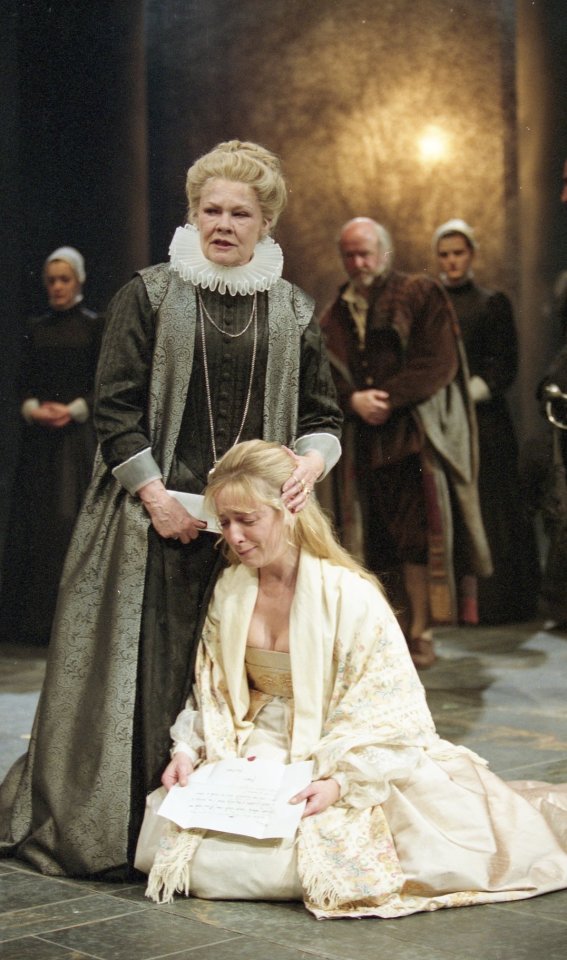
Shakespeare exploits the various associations of the pilgrim in post-Reformation England. In Helen, papist and Catholic connotations are compounded: she is meritorious and devious, miraculous and cunning. The ‘happy ending’ of this play sees husband and wife reunited and apparently reconciled. But the ‘real’ wonder of this moment is provisional: ‘All yet seems well’ (my emphasis). The audience is very aware of the pragmatic tricks that Helen had to perform in order win this resolution. By drawing on the contradictory meanings of the pilgrim, Shakespeare creates a paradoxical character that engages his audience with the ethical dilemmas of fiction: when might the means justify the ends?
In this play, as in others, Shakespeare calls on the ambiguous associations of Catholic figures, images and ideas, as a means of engaging his audience with the problems he frames. He seems to revel in the pleasures of slippery meaning. By flirting with stereotypes and sectarian expectations he makes his audience think more deeply about the difficulties of the plays and their own culture. Whatever Shakespeare’s personal religion was, the religion he put on stage was both playful and probing.
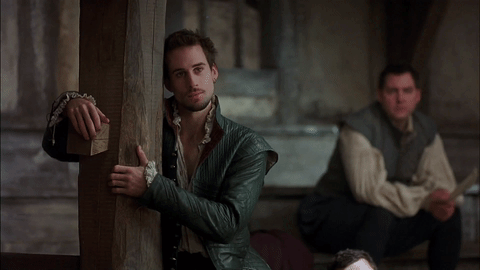
But it is an interesting question to speculate what William Shakespeare’s religious beliefs were. I’ve had several fascinating discussions with friends and even work colleagues (between them they have a few English lit PhDs under their belt) to get a better understanding of this question.
When Shakespeare died in 1616 at age 52, he was buried in Holy Trinity Church, Stratford-upon-Avon, which would have been an impossibility for a known atheist. Yet questions about his religion arose early, some 70 years after his death, when Richard Davies, an Anglican clergyman, wrote from local legend that the poet had “dyed a Papyst.”
The controversy continued. In the 18th century, Samuel Johnson considered Shakespeare a brilliant but irreverent poet. Consider the Bard’s lines: “Why, all the souls that were, were forfeit once/ And He that might the vantage best have took/ Found out the remedy.” So speaks the Franciscan novice Isabella to the cruel judge Angelo in Shakespeare’s black comedy ‘Measure for Measure’ (1604). Is the poetry here biblical or merely “universal” in its meaning?
A century later Samuel Taylor Coleridge found the Bard’s comedic forgiveness of the judge Angelo to be morally abhorrent. While literary critics believed Shakespeare too “fanciful” and “rustic” to be orthodox, many popular authors noted Shakespeare’s encyclopaedic use of the Bible.
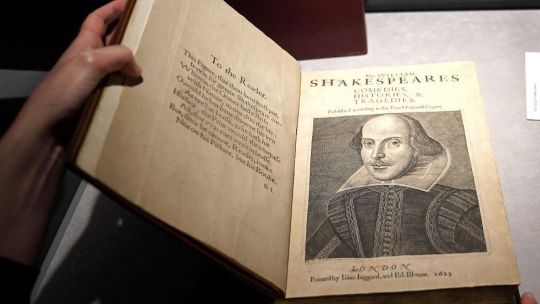
One my Irish work colleagues who has an English Lit PhD pointed to other commentators who entered the fray. For example in 1899, the Rev. H. S. Bowden collected the evidence in The Religion of Shakespeare, using the work of Richard Simpson to compile his pro-Catholic compendium.
She also told me that it was not until G. Wilson Knight successfully argued in The Wheel of Fire (1930) for a Christian and biblical Shakespeare that this view was accepted by what might be called the ‘Shakespeare establishment.’ For the first time in over 200 years, the problem of how the poet of “fancy” could also be a serious, Bible-loving Christian was considered solved. Yet this Shakespeare was the Protestant Shakespeare of the British Empire, not the Catholic poet of Father Bowden.
The “Catholic Shakespeare” thesis entered mainstream English criticism with E. A. J. Honigmann’s book, Shakespeare: The Lost Years (1985). It demonstrated how a butcher’s son from Warwickshire triumphed in London through connections with an aristocratic Catholic family in Lancashire, without implying that the Bard had a continuing allegiance to Rome.
The full development of the Catholic thesis, however, came in the seminal work of Peter Milward S.J. - Shakespeare’s Religious Background (1973), with further work by Ian Wilson in 1993 with this publication of his book, Shakespeare: The Evidence, which meticulously researched Shakespeare’s literary and political ties to Catholic patrons and politics.

All fine and dandy but these books never settled the question once and for all.
The main problem with claiming that Shakespeare was a Catholic recusant is the historical record: He lived and died a member of Holy Trinity Church in Stratford. Other close ties to the Reformed Church include his lodging with Huguenots when in London, and the marriage of his daughter Susanna to a Protestant doctor, John Hall, after she was fined for being a Catholic recusant. That record need not contradict what appears to be sympathy for Catholicism, clearly evident in his plays; but Shakespeare also tried to present an objective approach to Rome. For example, Franciscans are depicted for their honest vocations, although cardinals are notoriously portrayed as murderous cowards.
One possible explanation for this apparent inconsistency may lie in the fact that the English Reformation was still in progress during Shakespeare’s lifetime. England remained Catholic in spirit and practice long after 1534, with parts of Lancashire still practicing the “old faith” openly. It is possible that the post-Reformation Holy Trinity Church in Warwickshire was sufficiently traditional to allow a Catholic-sympathiser like Shakespeare to participate. If the Church of England authorities knew of the poet’s Stratford affiliation, then the fact that Shakespeare’s nonattendance at Puritan-leaning London parishes went unpunished could be explained.
Despite this, the Catholic recusancy thesis - that the plays have a pro-Catholic political subtext - has never received broad acceptance amongst scholars. And as for the general public, I don’t think they care. I wouldn’t take the question too seriously either, especially if it gets in the way of enjoying Shakespeare’s works in itself.

I would conclude that the most promising avenue for appreciating Shakespeare’s Catholicity lies not in biography but rather in the recognition of his Catholic imagination, readily discoverable in his plays. Through metaphor, the poet enlarges the sensibilities through an encounter with inspired meaning. Reformed theology had posited an irreparable break between the divine and the human, whereas the Catholic imagination seeks and finds the divine in broken humanity, bridging the gap between nature and grace.
One example should suffice. A reference to the passage “Why, all the souls…” from “Measure for Measure” demonstrates how a ‘Catholic’ imagination functions poetically. The speaker, Isabella, is a devout if initially self-righteous novice with the Poor Clares of Vienna. In her first meeting with the Puritan Angelo, she pleads for the life of her brother, who is under a death sentence for impregnating his girlfriend. Angelo argues that mercy is impossible because her brother “is a forfeit of the law.” In a Pauline argument, Isabella asserts that all were condemned by sin (Rom 3:23) until the Son of God sacrificed his equality with God to achieve salvation for the world (Rom 3:24-26).
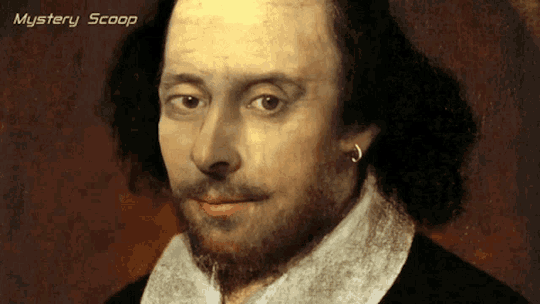
But I wouldn’t push it too far. It can be archetypal or thematic or say something of the Christian world view of sin, fallen-ness, and forgiveness, and redemption, but it’s not in your face and it’s not explicitly obvious. At the end of the day Shakespeare was a genius story teller, not a theologian or ideologue, or anything else.
This brings me to my final point. Speaking for myself as a theatre lover in general, the answer we seek must be in the context of why we love drama and Shakespeare’s theatre especially. The theatre seeks to entertain, preparing the heart and mind for reflection, while the purpose of sermons is to preach and instruct. Drama is never a sermon. And this would apply to the portrayal of Shakespeare as a proselytising Protestant, papist renegade or atheist subversive. When ideology reduces a living drama to apologetics, voices of protest will inevitably be raised. This is something we forget today as woke ideology has infected modern entertainment across the board. The Wokists - artists as activists who relentlessly peel back the onion skin until nothing is left - have forgotten the first rule of drama as truth telling: tell a good story, don’t preach.

Thanks for your question.
#ask#question#shakespeare#william shakespeare#plays#literature#playwright#religion#christianity#catholcism#protestantism#morality#imagination#catholic imagination#beliefs#shakespeare's religious beliefs#elizabethan england#anti-woke#woke#theatre#drama#arts#society#culture#english
51 notes
·
View notes
Text
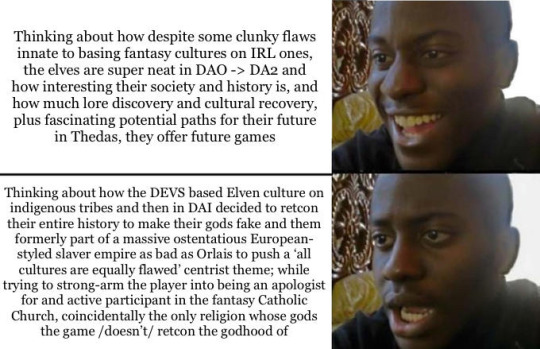
#dragon age origins#dragon age inquisiton#dragon age 2#hey. BioWare. I just want to talk i swear. I know it’s clear I’m lying but just come outside for a minute#wait. aren’t…? *checks* ah. ofc BioWare is a bunch of white Canadians doing this 🙄#people keep tagging this as ‘the maker better be fake too’ and sure. that’s an improvement yes. but also no. atheism is not a more#culturally woke and aware position really. not strong-armed. making the cultures based on indigenous and romani and sámi cultures gods all#fake and the fantasy Christian god be fake too isn’t actually a non-white European position at all. you guys have to see that right? it’s#not really much better. the ironclad and ordered dismissal of all religions as false is actually also a white colonial thing. it’s not good#the other god being fake too doesn’t undo the damage of this move like you see that right?
126 notes
·
View notes
Text
Religion of Friends
Continuing my search for form of religion that resonates with me. I found out about quakerism or Religious Society of Friends and it really resonates with me. Church that emphasices personal relationship with God, peace, tolerance and sustainability?! Sign me in. It's very positive about LGBTQ rights (which cannot be said of many churches) and interested in saving our planet (which is likevise not a priority in many churches) and they even value animal lives and veganism is not something frowned upon (this I must admit is a big sales point for me!). This churches is like a dream. Unfortunately no single branch in my city and the nearest meeting place would be some 1000 km away froom where I live so joining this church would require a miracle. But God, you can do it, right? Another problem would be my husband who is very attached to the traditions of Apostolic Church of Ghana and wouldn't dream of leaving the church. I on the other hand have worhipped in 3 different churches in my life (Lutheran, Pentecostal and now Apostolic) and was not raised Christin so I don't have strong sence of belonging to any particular church tradition. I do like my friends in the current church I belong to but I am increasingly saddened by their theology of hate, love of money and showbiz kinda ritualism and noice making. I mostly stay with the children at the children's ministry. They hold far less stupid ideas and don't try to force others to believe certain outdated legalistic views.
But I guess I could always be a quaker in my heart.
4 notes
·
View notes